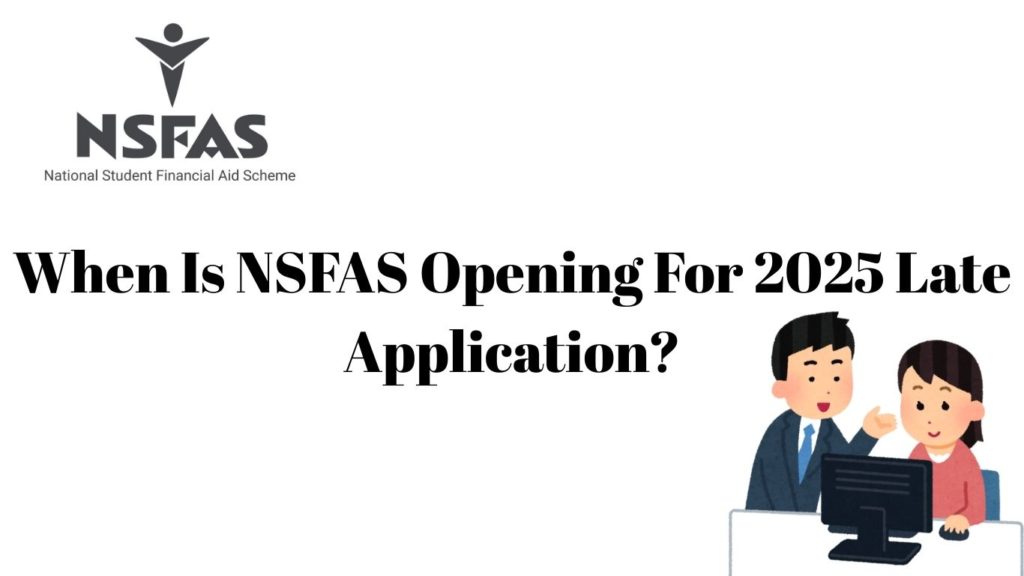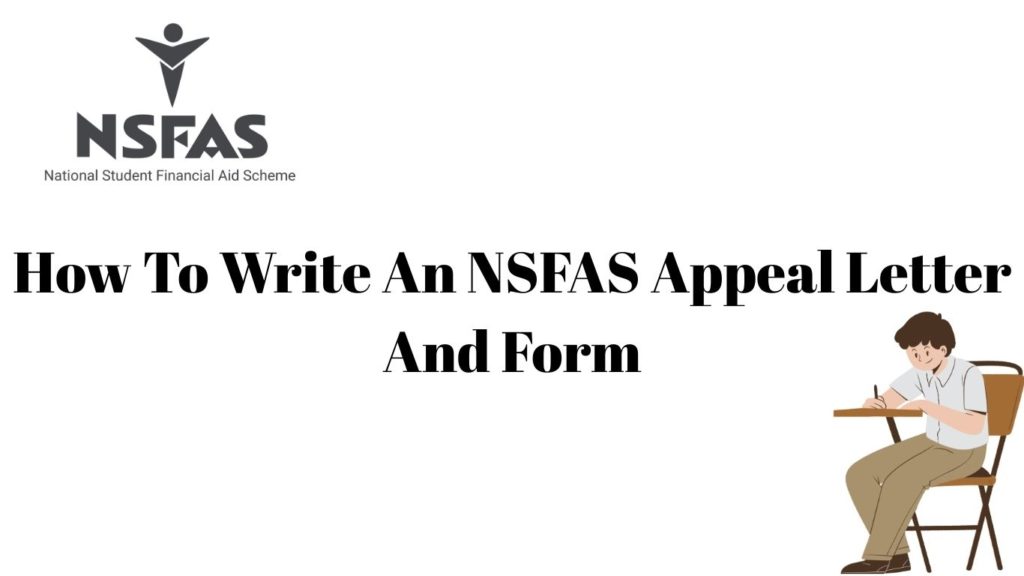Do Government Employees Qualify For NSFAS – Yes, government employees are likely to qualify for the National Student Financial Aid Scheme(NSFAS). Even though they are likely to qualify, their eligibility depends on meeting the financial criteria. The main factor is the combined household income, which must be R350,000 or less per year for financial assistance according to NSFAS. Government applicants are just like any other applicant. And just like any other applicants, you will need to demonstrate that your household income meets this requirement to be qualified for the funding. Usually, the funding is available to South African citizens and people with permanent residence, with the combined household income being the primary determinant.
Government employees, by the nature of their employment, are typically assumed to have a stable income source and are therefore unlikely to meet the financial eligibility criteria for NSFAS. Even though, by the nature of their work, they seem to be financially stable, not all government employees have a household income of R350,000 to R600,000.
While low-government employees like clerks, cleaners, admin staff usually earn below R350,000, mid-level employees like teachers, police officers, nurses, etc, earn about R250,000 to R400,000 per year. Senior-level- level employees like managers, directors, etc, often earn well over R350,000 per year, sometimes R500,000 or more.
READ ALSO: How Long Does NSFAS Take To Receive Registration Data From The Institution?
All employees with less than R350,000 household income will qualify for the NSFAS funding. Those with household income of R350,001 to R600,000 will not qualify for a bursary but for a loan rather. Also, the household income is not just the income of one parent or guardian. It’s both, unless it’s a single parent. The proof of income for parents or guardians includes payslips, pension slips, and affidavits for informal traders.
In this article, we are going to take a look at whether or not government employees qualify for NSFAS or not.
Do Government Employees Qualify For NSFAS?
Yes, government employees qualify for NSFAS Funding as long as they meet the eligibility and have a household income that meets the requirements an applicant will need to be qualified.
The National Student Financial Aid Scheme (NSFAS) is an institution designed to assist South African citizens and permanent residents who come from a low class family or from financially disadvantaged backgrounds to access higher education. So, being a government worker doesn’t automatically qualify you for NSFAS funding.
Here is a detailed breakdown;
Household Income:
The primary eligibility criterion is the combined household incom,e which is not more than R350,000 per year. Applicants whose household income is between R350,000 to R600,000 may qualify for a loan. The household income includes all formal and informal sectors, including salaries, wages, retirement income, grants, business income and investment gains.
Also, the income threshold for students with disabilities is higher, allowing for a combined household income of up to R600,000.
South African Citizenship and Residency.
The applicant must be a South African citizen. If the applicant is a foreigner, the applicant must have a permanent residence. Permanent residents may also be qualified for certain loans.
Academic Requirement
Applicants must be accepted to study at a public university or TVET college. The NSFAS funding is primarily for first undergraduate qualifications.
TVET students may be funded for NC(V) programs, NATED programs, and other NSFAS-approved qualifications.
Returning students funded by NSFAS must meet academic qualification criteria to continue receiving funding.
READ ALSO: When Will I Receive My First NSFAS Allowance?
Who Qualifies For NSFAS Funding?
NSFAS has been instituted by the government to provide financial assistance to persons who want to pursue higher education but lack the financial capabilities to do so. But for one to enjoy the benefits that come with the NSFAS, they have to meet certain requirements as well. To qualify for the National Student Financial Aid Scheme (NSFAS) I South Africa, applicants must meet some specific eligibility criteria.
1. Nationality and Study Requirements
- To qualify for NSFAS, you must be a South African citizen or permanent resident with a valid ID. Also, you must be registered or you should be planning to register at a public university or TVET college in South Africa, studying for an approved undergraduate qualification.
2. Financial Need
Bursary Eligibility (non-repayable): A household income not less than R350,000 per year or a SASSA grant recipient. eg, child support, foster grants.
Loan Eligibility
Household income R35,000 to R600,000
Disability Consideration
With disabled students, the income threshold increases to R600,000 per year.
3. Academic & Enrollment Conditions.
- Applicants must meet the minimum admission requirements of their chosen institution. For students who are continuing, you must pass at least 50% of the modules from the previous year.
- Funding is usually only for first-time undergraduate qualifications(exceptions include funding for some postgraduate certificates like teaching). You are not eligible if you have already completed an undergraduate qualification.
Who Cannot Apply For NSFAS?
As mentioned earlier, the NSFAS is meant to help students pursue higher education, but does it mean everyone can apply for it? The simple answer is no. Not everyone is eligible to even apply for NSFAS. A Lot of people are not eligible for NSFAS funding. This means that they can not receive funding from NSFAS because they do not meet the standards and criteria of NSFAS. The following are students who cannot apply for NSFAS:
1. Household income above the threshold: You do not qualify for funding if your combined household income is more than R350,000 per year or more than R600,000
per year for students with a disability..
2. Already hold a university qualification: If you have already attended university and you already have a diploma or a degree, you cannot apply for the funding. The NSFAS only funds your first qualification. Also, exceptions may apply for students who are upgrading to teaching or nursing qualifications in insufficient skills areas, but these are limited.
3. Studying at an unapproved institution: The NSFAS funds only public institutions, either a public university or a TVET college. If you are at a private institution, you do not qualify for the funding.
4. Foreign national: Foreigners who do not have permanent residence are not qualified.
You do not qualify for NSFAS funding if you are not a South African citizen.
5. Failure to meet academic requirements: If you are a returning student who didn’t meet the minimum academic requirements, which is usually a 50% pass, you may likely be excluded from funding. Also, if you have exceeded the N+ rule, which means taking too many years to complete your course than the usual number of years, your NSFAS funding can be withdrawn.
6. Funded by another bursary: If you are receiving financial assistance from another government department or you are receiving a government sponsorship that covers full cost, you cannot apply to NSFAS for another funding. You are not qualified to do that.
7. Studying in non-approved qualifications: Students who are pursuing qualifications that have not been approved by the Department of Higher Education and Training, also known as the DHET, or the South African Qualifications Authority (SAQA), are not eligible for funding.
READ ALSO: How Long Does NSFAS Take To Respond To Appeals?
What Is The Income Threshold For Government Employees To Qualify For NSFAS
To qualify for the NSFAS, the student must meet a certain amount of money, thus the combined income of the family must not exceed a certain amount. For National Student Financial Scheme (NSFAS) funding, the combined household income for government threshold for government employees and all applicants is generally not more than R350,000 per annum. If an applicant’s combined household income falls between R350,001 to R600,000, they may likely qualify for a student loan. When it comes to applicants who may be suffering from a disability or a disabled student, the threshold is usually higher, with a combined household income of not more than R600,000 per year.
Here is what governs NSFAS eligibility for government employees’ family income.
Annual Household Income Thresholds.
- The annual household income threshold for government employees and their families should be up to R350,000 per year (without deduction of tax or other contributions). If your total household income, including both parents, does not exceed R350,000 per year, you are fully qualified for the NSFAS bursary funding.
- Also, from R350,001 to R600,000 per year, if your household income falls within this bracket, your child may be qualified for a means-tested loan rather than the full bursary package.
- If your annual household income is above R600,000: Generally, household income above this level makes applicants ineligible for NSFAS funding under standard criteria unless the applicant is a student with a disability.
If a student’s household income is below the R600,000 threshold, likely, they might still not qualify for the funding. They will have to meet the standard, which is R350,000, before the applicant can be eligible for NSFAS funding. Working in the government sector does not automatically qualify you for NSFAS funding. You or your child can be qualified only when your combined household income stays below R350,000, just like any other applicant. The R350,000 threshold applies to every student except for those with disabilities (they have a higher threshold for bursaries). For any threshold income between R350,001 and R600,000, only a loan is available, not a full bursary.
How Much Must You Earn To Qualify For NSFAS?
There is a need to earn a certain amount of money, which is mostly referred to as annual household income, to qualify for NSFAS. For a student to qualify forthe National Student Financial Aid Scheme(NSFAS) bursary, the applicant’s combined household income must not exceed R350,000 per year. If your household income is more than the given amount and falls between R350,000 and R600,000, the applicant will not be qualified for a loan.
Here is a more detailed breakdown.
Key Eligibility Income Thresholds:
Up to R350,000 per year:
Qualified for full bursary, which covers tuition, accommodation, allowances, etc
Between R350,001 per year and R600,000 per year.
Not qualified for a bursary but may qualify for a means-tested loan.
Above R600,000 per year
Generally not qualified for both bursaries and loans.
These limits apply to students from households without disabilities. Students with disabilities have a higher bursary threshold of up to R600,000 per year. Also, if someone in the household receives a SASSA social grant, the applicant may be automatically qualified regardless of their income. Household income includes all forms of income, being itis salaries, wages, retirement benefits, informal learning or even near-cash transfers. If you are a parent or guardian working for the government, your child’s eligibility depends only on your combined household income, not your employment.
There is no special exclusion for government workers.
READ ALSO: Does NSFAS Fund Teaching Courses?


